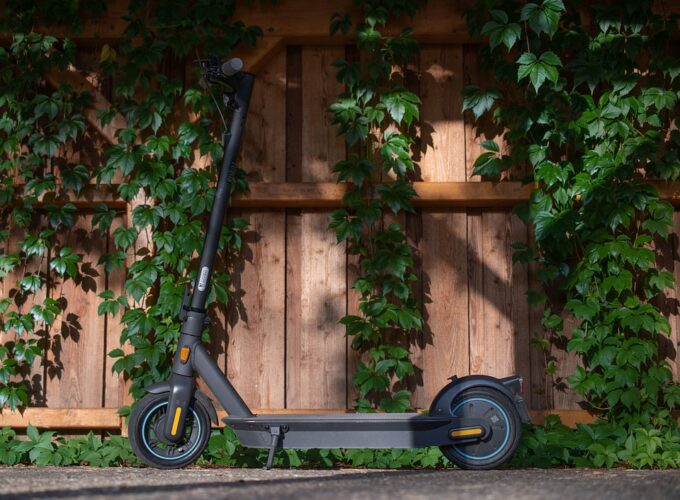Sharing of e-scooters not slowed down despite Corona
Sharing e-scooters, bikes and the like is still firmly anchored in the market in Europe's major cities. This is shown by a study conducted by ZHAW students in seven European cities.

The European market for e-scooter sharing continued to grow in the crisis year 2020 - but not as strongly as in the previous year. At that time, the number of e-scooters had increased more than tenfold overall within one year. This is shown by a comparative study conducted annually by ZHAW students in the Transportation Systems program. The bikesharing market, on the other hand, became somewhat smaller last year. In Zurich and Vienna, there are now almost three times as many e-scooters as bicycles for rent. In all other cities, however, bikes still have the upper hand.
Largest e-scooter density in Zurich
In 2019, Berlin, Copenhagen and Zurich in particular were flooded with e-scooters. This boom has now also reached Barcelona and Paris in 2020. While the fleet sizes in Berlin and Copenhagen have hardly changed since 2019, one can see further growth in Zurich compared to the previous year. With now almost 4000 e-scooters and thus more than eight vehicles per 1000 inhabitants, the sharing offer here is four times denser than in the other cities studied. But when will the growth come to an end?
"The stagnating numbers in Berlin and Copenhagen could be the first harbingers of market saturation," says Transportation Systems student Christof Kraft, who led the ZHAW study. "It remains to be seen whether other cities will also see a stabilization of numbers in the future, or whether there will even be a decline in some cases due to legal restrictions."
More and more rules for e-scooters
Many cities in Europe have already taken measures to regulate e-scooter sharing offers. In Zurich, for example, a maximum of 800 vehicles per provider is permitted. In Vienna, in addition to a restriction to a maximum of 1500 vehicles per provider, there has been a police regulation with additional regulations and tightening since mid-2020. In Paris, an application process was conducted in the summer of 2020, in which 16 providers applied for approval in the city. In the end, three providers were selected. These will be allowed to operate in Paris over the next two years with a maximum of 5000 vehicles each. London will also conduct such a selection process in 2021.
Scooter sharing in distress
There is a great deal of competition among providers in the bikesharing market. This is evidenced by the numerous market exits and takeovers by various operators. The total number of sharing bikes has fallen by almost 15 percent. Fleet sizes in scooter sharing are also slightly down in many cities.
"On the one hand, the decrease in scooter supply can be explained by the increasing attractiveness of e-scooter sharing," says Christof Kraft. "On the other hand, the e-bikes that have been added cover those needs that scooter sharing originally targeted." The scooters are also more expensive to purchase and maintain. Students expect this sharing service to take on a smaller and smaller role in the coming years.
Source: ZHAW









